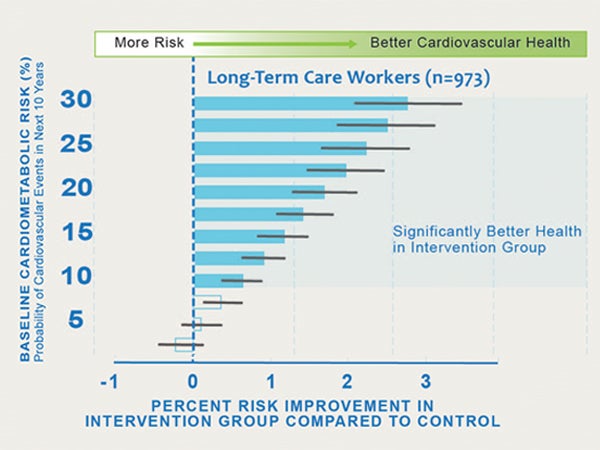A reduction in stressful conditions at work has now been linked to a reduction in cardiovascular disease (CVD) among those employees who were at an elevated risk of CVD at the start of the intervention study, especially if they were older workers.
Researchers affiliated with The Work, Family & Health Network Study deployed interventions at two different types of works sites (IT and long-term care) designed to increase work-life balance for employees by training managers to be supportive, and allowing employees to have some control over their schedules.
Our Center Director Lisa Berkman is co-lead author on the paper in the American Journal of Public Health that reports these promising findings, and comments:
“The study illustrates how working conditions are important social determinants of health, When stressful workplace conditions and work-family conflict were mitigated, we saw a reduction in the risk of cardiovascular disease among more vulnerable employees, without any negative impact on their productivity. These findings could be particularly consequential for low- and middle-wage workers who traditionally have less control over their schedules and job demands and are subject to greater health inequities.”
Hayami Koga, a Harvard Bell Fellow here at the Center, is also an author.
Reported by:
